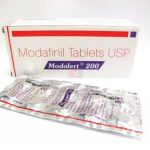Drug instructional classes act as priceless instructive pathways for people looking to succeed in the dynamic and exceptionally managed field of drugs. Beyond acquiring theoretical knowledge, these courses provide a wealth of benefits. Pharmaceutical manufacturing professionals play a crucial role in producing safe, effective medications while adhering to stringent quality standards.
Development of specialized skills and expertise:
One of the essential advantages of finishing drug instructional classes is the securing of specific aptitude and abilities. These courses give far reaching preparing in regions like pharmacology, administrative consistence, clinical preliminary administration, and quality confirmation. Members arise with a profound comprehension of industry-explicit ideas and practices, alongside useful abilities fundamental for outcome in drug vocations.
Professional success Valuable open doors:
Courses in pharmaceutical training improve participants’ credentials and make them more employable in the industry. Whether trying to work in innovative work, administrative issues, quality control, or clinical tasks, getting done with these tasks exhibits a promise to proficient turn of events and capability in drug rehearses. Such capabilities frequently open ways to professional success open doors and more lucrative jobs inside drug organizations and administrative offices.

Adherence to Administrative Norms:
The pharmaceutical industry relies heavily on regulatory compliance, and training courses play a crucial role in ensuring that strict standards and guidelines are adhered to. Good Manufacturing Practices (GMP), Good Clinical Practices (GCP), and other regulatory requirements established by authorities such as the FDA and EMA are well-known to professionals who have completed pharmaceutical training courses. Their ability works with the turn of events, assembling, and showcasing of drug items that live up to administrative assumptions, guaranteeing patient security and item quality.
Commitment to Medication Wellbeing and Viability:
Drug instructional classes accentuate the significance of pharmacovigilance and medication security all through the item lifecycle. Contributing to the continuous improvement and monitoring of drug safety profiles, participants learn to identify, evaluate, and manage adverse drug reactions. Additionally, professionals who receive training in the management of clinical trials are given the abilities to plan and carry out rigorous studies, which improves the effectiveness and dependability of pharmaceutical interventions.
Taking everything into account, the advantages of finishing drug instructional classes are complex, going from particular ability and professional success potential open doors to commitments to sedate security and persistent expert development. By putting resources into training and expertise improvement, people upgrade their own possibilities as well as add to the headway of the drug business and the prosperity of patients around the world. These Pharmaceutical manufacturing professionals possess expertise in various aspects of drug production, ensuring efficiency, compliance, and product integrity throughout the manufacturing process.










